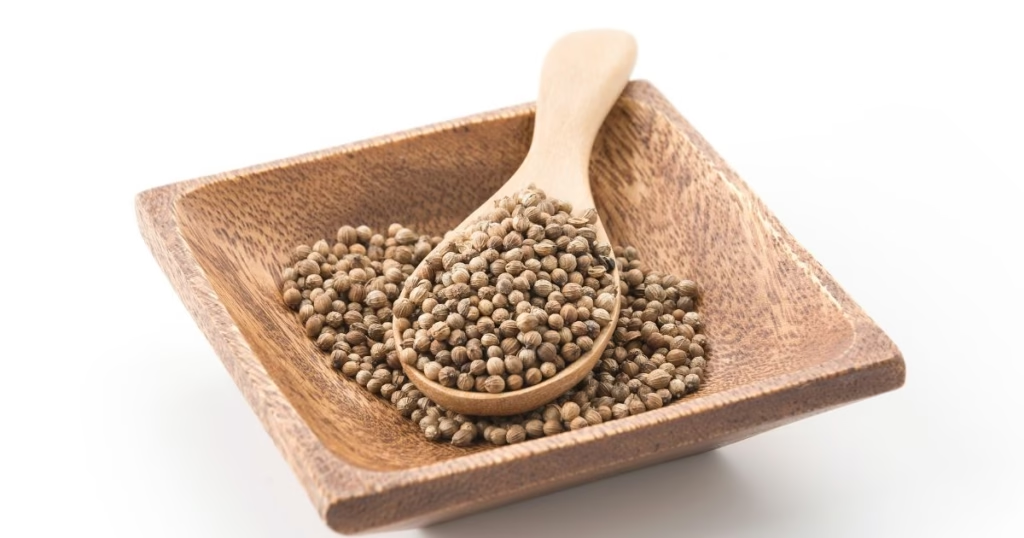Coriander Seed
What Are Coriander Seeds?
Coriander seed are the dried fruits of the Coriandrum sativum plant, used extensively as a spice and herbal remedy across various cultures. Understanding their origin and botanical background helps clarify their culinary and medicinal significance.
Origins and History
Coriander seed is one of the oldest known spices. It was used in ancient Egypt for medicinal and spiritual purposes and even mentioned in the Bible. Its use spread through Greek, Roman, and Middle Eastern cultures before reaching Asia and the Americas.
Botanical Description
These seeds are small, round, and tan-colored with ridges. The plant itself belongs to the parsley family and produces both leaves (known as cilantro) and seeds, offering double the culinary benefit from one plant.
Coriander vs Cilantro: What’s the Difference?
Cilantro refers to the fresh leaves, while coriander typically refers to the dried seeds. Though they come from the same plant, their flavors are entirely different—cilantro is citrusy and fresh, coriander is warm and nutty.
Nutritional Profile of Coriander Seeds
Coriander seeds may be small, but they are densely packed with essential nutrients that can contribute to overall well-being.
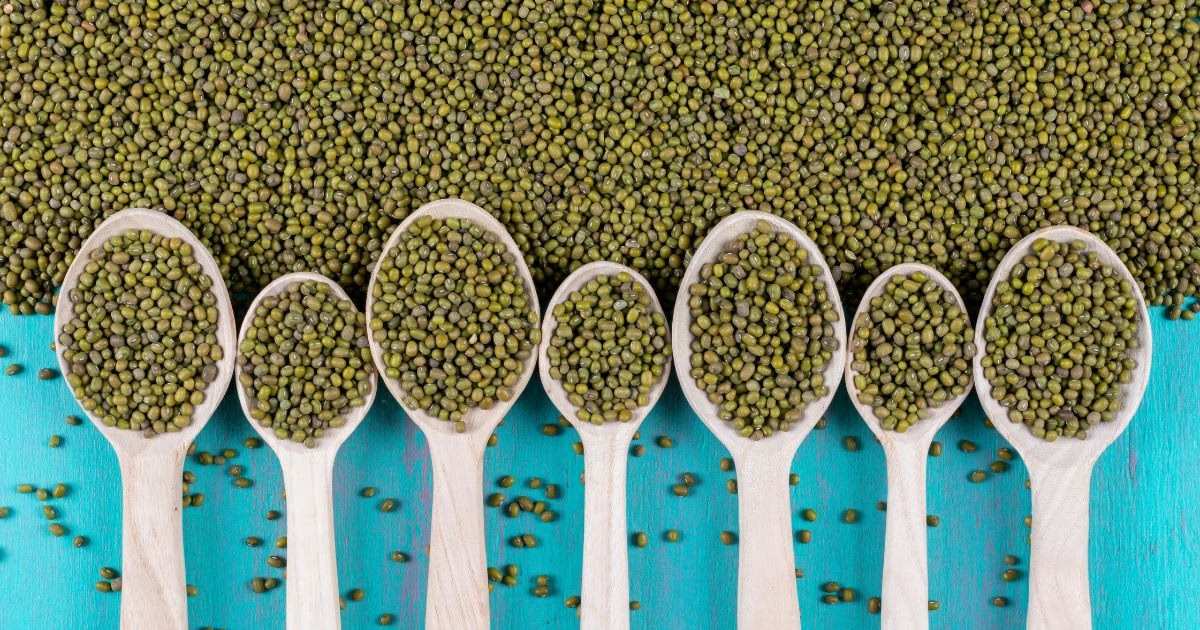
Key Vitamins and Minerals
These seeds are a solid source of magnesium, iron, calcium, and potassium. They also provide small but useful amounts of vitamin C and vitamin K, essential for immunity and bone health.
Antioxidant Content
Coriander seeds contain antioxidants such as quercetin and tocopherols, which help neutralize harmful free radicals and reduce inflammation, making them great for long-term health support.
Caloric and Macronutrient Breakdown
They are low in calories, with about 15 per tablespoon, and contain carbohydrates, a trace of fat, and some protein. This makes them an excellent flavoring agent that won’t add bulk to your diet.
Health Benefits of Coriander Seeds
This section explores why coriander seeds are often regarded as natural medicine. Their compounds offer several healing properties for different bodily systems.
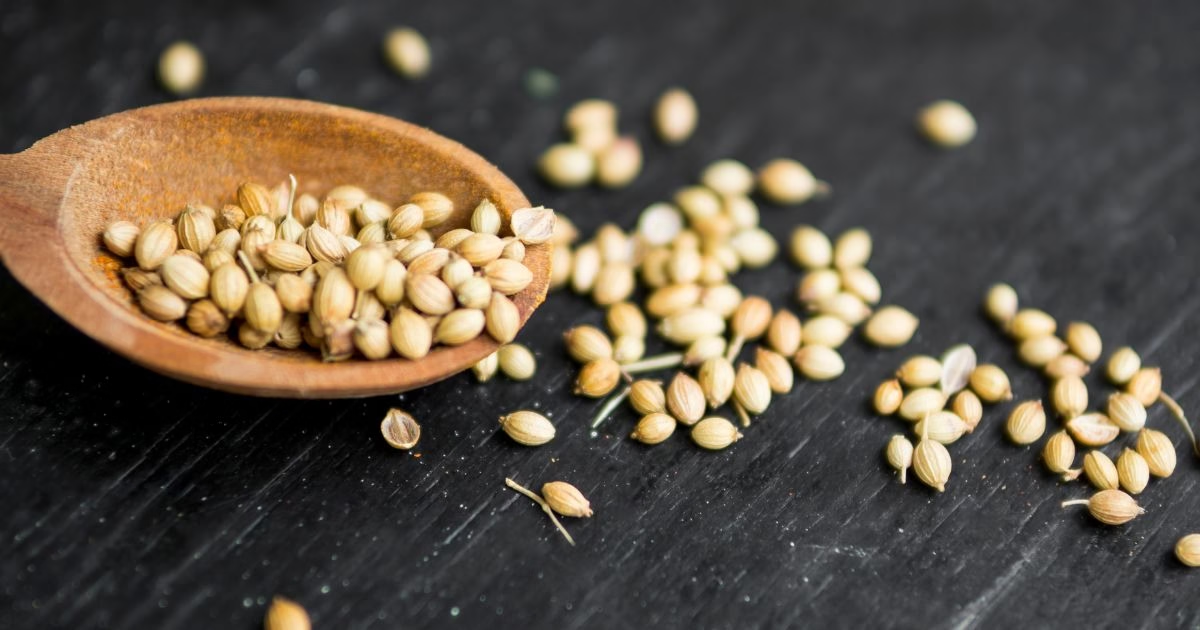
Supports Digestion
Coriander seeds stimulate the secretion of digestive enzymes and juices, improving overall gut function and reducing bloating, gas, and indigestion.
Regulates Blood Sugar
Research indicates that coriander can influence insulin activity and help regulate blood sugar levels, making it beneficial for people with type 2 diabetes.
Boosts Heart Health
Rich in potassium and antioxidants, coriander seeds help reduce high blood pressure and lower bad cholesterol (LDL), which protects against heart disease.
Fights Inflammation
Chronic inflammation contributes to many diseases. Coriander’s anti-inflammatory properties may ease arthritis symptoms, headaches, and muscle pain.
Antibacterial and Antifungal Properties
Coriander seed oil has shown effectiveness in fighting bacteria like E. coli and fungi like Candida. It’s a natural ally in protecting against infections.
Uses of Coriander Seeds in Cooking
From flavoring curries to baking bread, coriander seeds are a staple in global kitchens. Their versatility and aroma make them a prized ingredient.
Culinary Uses Around the World
Indian, Middle Eastern, Latin American, and Mediterranean cuisines all feature coriander seeds. They’re used in spice blends like garam masala, ras el hanout, and curry powder.
Ground vs Whole Coriander Seeds
Whole seeds release flavor slowly and are ideal for long-simmering dishes. Ground coriander offers an instant burst of flavor but loses potency faster.
How to Toast for Maximum Flavor
Toasting coriander seeds in a dry skillet before grinding enhances their nutty and citrusy aroma. Just a minute or two over medium heat can unlock their full taste potential.
Coriander Seeds in Traditional Medicine
Ancient systems of medicine have long used coriander seeds for their healing qualities. This section dives into how they’re utilized across traditions.
Ayurveda and Coriander
In Ayurveda, coriander is seen as a cooling spice. It’s used to soothe digestive issues, reduce heat-related imbalances, and act as a mild diuretic.
Traditional Chinese Medicine Uses
TCM uses coriander to warm the body and stimulate appetite. It’s believed to improve digestion and “move Qi,” or vital energy, through the digestive tract.
Home Remedies Passed Down Generations
Coriander water (seeds soaked overnight and boiled in the morning) is a popular home remedy for indigestion, menstrual cramps, and bloating.
How to Store and Preserve Coriander Seeds
Proper storage is crucial to maintain flavor and effectiveness. This section ensures you get the most shelf life out of your seeds.
Best Storage Conditions
Keep them in an airtight container, away from sunlight and moisture. A pantry or spice drawer is ideal.
Shelf Life and Spoilage Signs
Whole coriander seeds can last up to a year, while ground seeds lose potency within 6 months. Discard if they smell musty or have lost aroma.
How to Grow Your Own Coriander for Seeds
Growing coriander at home is easy and rewarding. Here’s how to ensure a steady supply.
Planting Tips
Sow seeds directly into well-drained soil with full sun exposure. Coriander doesn’t transplant well, so plant where it will grow.
Harvesting Seeds
Wait until the plant flowers and seed pods turn brown. Cut the stems and place them upside-down in a paper bag to dry.
Drying and Saving for Future Use
Once dry, crush the seed heads gently and collect the seeds. Store them in an airtight jar for culinary or medicinal use.
Coriander Seeds and Weight Loss
Looking to shed a few pounds naturally? Coriander seeds may support your journey.
Detoxifying Properties
They help the body eliminate toxins by stimulating kidney and liver function. Detoxification is often a key step in weight loss routines.
Metabolism Booster or Myth?
While not a miracle fat-burner, coriander seeds can aid in weight loss by improving digestion and preventing water retention.
Read More:Black Soap: Nature’s Skincare Secret You Need to Know
Side Effects and Precautions
Even natural ingredients can have side effects. This section keeps you informed and safe.
Allergies and Interactions
Some people may experience allergic reactions like rashes or itching. Coriander may also interact with diabetes or blood pressure medications.
How Much is Too Much?
Stick to 1-2 teaspoons per day. Overconsumption could lead to stomach upset or skin sensitivity in rare cases.
Buying Guide: What to Look for in Quality Coriander Seeds
Choosing the right coriander seeds can make all the difference in taste and health benefits.
Organic vs Conventional
Organic seeds are grown without harmful chemicals. They tend to be fresher and more potent.
Whole vs Ground
Whole seeds maintain flavor longer. Grind in small batches at home for the freshest taste.
DIY Coriander Seed Recipes
Coriander seed can be used in quick, simple home remedies and recipes that go beyond the spice rack.
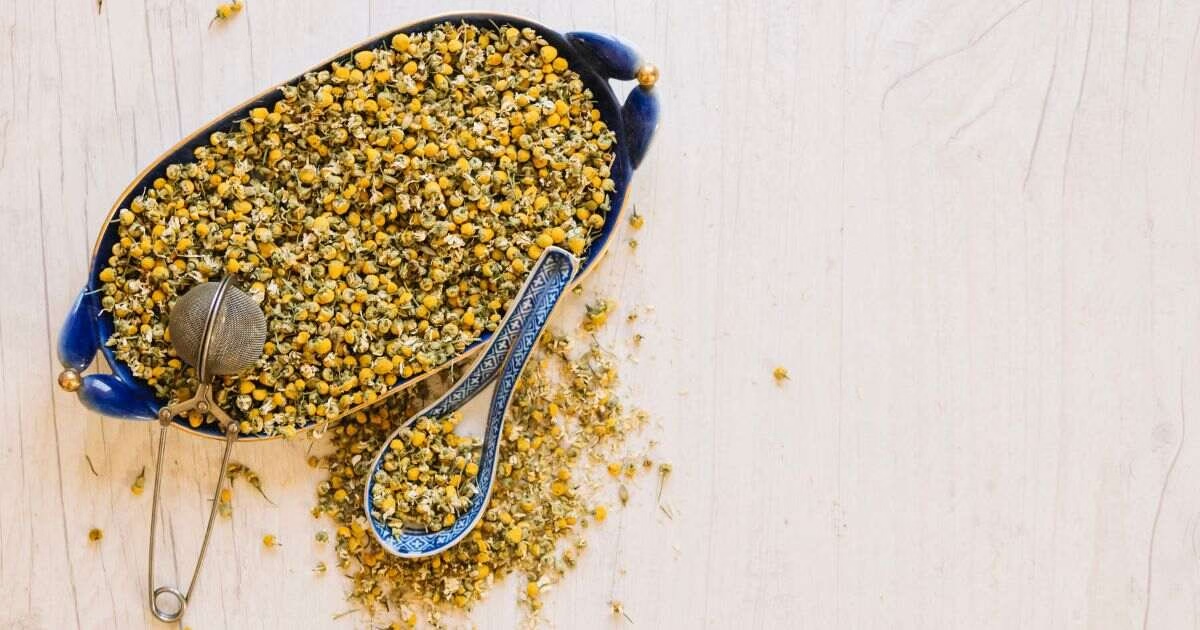
Coriander Tea for Digestion
Boil 1 tsp of seeds in 1 cup of water, simmer for 10 mins, strain and sip. It eases gas and promotes healthy digestion.
Homemade Coriander Powder
Toast whole seeds lightly, let them cool, and grind them to make a fragrant powder you can store for months.
Spiced Coriander Rice
Add toasted coriander, cumin, and mustard seeds to hot ghee or oil. Toss with cooked rice for a quick flavor bomb.
Coriander Seeds for Skin and Hair
Beauty benefits? Yes, coriander seeds have those too.
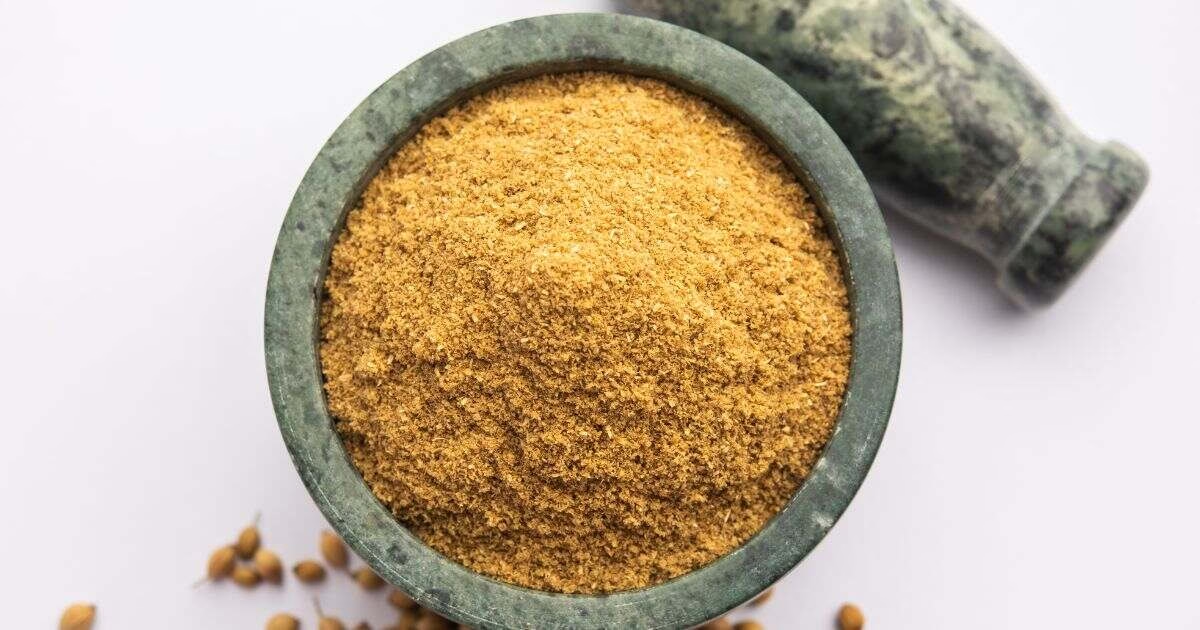
Anti-Acne Face Mask
Grind coriander seeds and mix with honey and yogurt. Apply for 15 minutes to reduce inflammation and acne.
Hair Growth Tonic
Boil seeds in water, let it cool, and rinse your scalp. It stimulates follicles and helps control dandruff.
Fun Facts About Coriander Seeds
- Mentioned in ancient Sanskrit texts and the Bible.
- Seeds were found in the ruins of ancient Egypt.
- They’re technically a fruit, not a true seed.
- The essential oil is used in perfumes.
- Some people genetically perceive the taste of cilantro (the leaves) as soapy, but not the seeds.
Conclusion
Coriander seeds aren’t just for seasoning—they’re a versatile powerhouse with benefits for your digestion, heart, skin, and more. Whether you’re sipping coriander tea or tossing them into your next meal, these seeds are a simple yet impactful way to boost your health and flavor game. Give them a try—your body (and your tastebuds) will thank you.
FAQs
Can you eat raw coriander seeds?
Yes, but they’re best when lightly toasted or brewed in tea to unlock their flavor and medicinal properties.
Do coriander seeds taste like soap?
No. That soapy flavor some people taste comes from cilantro leaves, not the seeds.
How do I use coriander seeds for bloating?
Boil a teaspoon in water for 10 minutes, then sip slowly. It helps release trapped gas and soothe digestion.
Are coriander seeds safe during pregnancy?
In culinary amounts, yes. But avoid large medicinal doses without consulting your doctor.
Can coriander seeds help lower cholesterol?
Yes. Studies suggest their antioxidants can lower LDL and support heart health.

